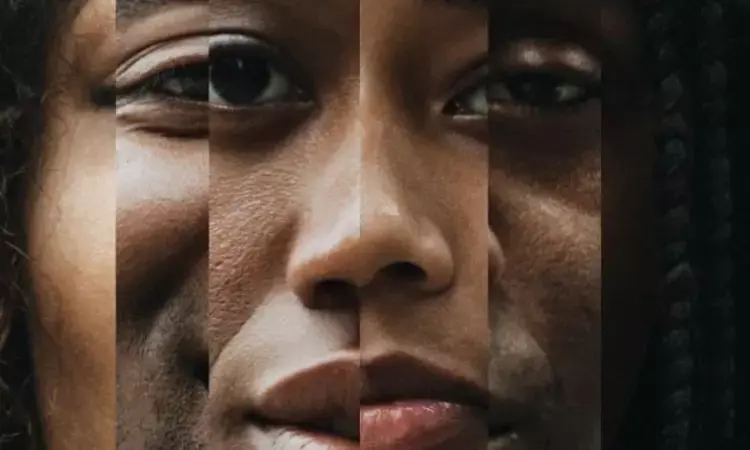- Home
- Medical news & Guidelines
- Anesthesiology
- Cardiology and CTVS
- Critical Care
- Dentistry
- Dermatology
- Diabetes and Endocrinology
- ENT
- Gastroenterology
- Medicine
- Nephrology
- Neurology
- Obstretics-Gynaecology
- Oncology
- Ophthalmology
- Orthopaedics
- Pediatrics-Neonatology
- Psychiatry
- Pulmonology
- Radiology
- Surgery
- Urology
- Laboratory Medicine
- Diet
- Nursing
- Paramedical
- Physiotherapy
- Health news
- Fact Check
- Bone Health Fact Check
- Brain Health Fact Check
- Cancer Related Fact Check
- Child Care Fact Check
- Dental and oral health fact check
- Diabetes and metabolic health fact check
- Diet and Nutrition Fact Check
- Eye and ENT Care Fact Check
- Fitness fact check
- Gut health fact check
- Heart health fact check
- Kidney health fact check
- Medical education fact check
- Men's health fact check
- Respiratory fact check
- Skin and hair care fact check
- Vaccine and Immunization fact check
- Women's health fact check
- AYUSH
- State News
- Andaman and Nicobar Islands
- Andhra Pradesh
- Arunachal Pradesh
- Assam
- Bihar
- Chandigarh
- Chattisgarh
- Dadra and Nagar Haveli
- Daman and Diu
- Delhi
- Goa
- Gujarat
- Haryana
- Himachal Pradesh
- Jammu & Kashmir
- Jharkhand
- Karnataka
- Kerala
- Ladakh
- Lakshadweep
- Madhya Pradesh
- Maharashtra
- Manipur
- Meghalaya
- Mizoram
- Nagaland
- Odisha
- Puducherry
- Punjab
- Rajasthan
- Sikkim
- Tamil Nadu
- Telangana
- Tripura
- Uttar Pradesh
- Uttrakhand
- West Bengal
- Medical Education
- Industry
Rare case of face blindness following COVID-19 infection reported

USA: Results from a case study of a 28-year-old woman named Annie indicate that COVID-19 can produce severe and selective neuropsychological impairment like deficits following brain damage. It appears that high-level visual impairments are common in people with long COVID.
Long COVID, or post-acute sequelae of SARS-CoV-2 infection (PASC), is characterized by several symptoms that resurface, begin, or persist even after 12 weeks of the initial COVID-19 infection. These symptoms include psychological problems comprising long-lasting memory, loss of smell and taste, psychosis, and language impairments that substantially impair everyday functioning. However, no persisting and selective visual perception deficits have been reported.
Marie-Luise Kieseler and Brad Duchaine from Dartmouth College in Hanover, NH, USA, and colleagues, in their study published in the journal Cortex, provide the first report of prosopagnosia after symptoms consistent with COVID-19.
In their study, the investigators reported that COVID-19 could sometimes cause severe selective impairments like prosopagnosia and well-known broad impairments. Survey data collected from individuals with PASC/long COVID also demonstrated that cognitive and perceptual deficits following COVID-19 were present in a substantial proportion of the respondents, though none report having acquired prosopagnosia.
Acquired prosopagnosia results from damage to the occipitotemporal face-processing network and frequently co-occurs with deficits that impact navigation, colour perception, and object recognition.
The case described in the study is of a 28-year-old woman, Annie, who contracted COVID-19 in March 2020, before which she had normal face recognition. After two months, she noticed difficulties in face recognition with symptom relapses, and her deficits with faces have persisted. Annie showed evident impairments on two tests of familiar face recognition and two tests of unfamiliar face recognition. However, her scores on tests assessing face detection, object recognition, non-visual memory, and scene recognition were normal.
There is a frequent co-occurrence of navigational deficits with prosopagnosia, and Annie reported that her navigational abilities are substantially worse than before she became ill. Self-report survey data from 54 respondents with long COVID revealed that most reported reduced navigation abilities and visual recognition.
"Our findings suggest that a substantial number of people with PASC/long COVID experiencing selective visual deficits and show that future work should aim to understand the nature of these deficits and whether intervention can be developed to lessen their impact," the researchers wrote.
To conclude, Annie's results suggest that COVID-19 can produce severe and selective neuropsychological impairment like deficits following brain damage. High-level visual impairments appear not uncommon in people with long COVID.
Reference:
Kieseler, M., & Duchaine, B. (2023). Persistent prosopagnosia following COVID-19. Cortex. https://doi.org/10.1016/j.cortex.2023.01.012
Dr Kamal Kant Kohli-MBBS, DTCD- a chest specialist with more than 30 years of practice and a flair for writing clinical articles, Dr Kamal Kant Kohli joined Medical Dialogues as a Chief Editor of Medical News. Besides writing articles, as an editor, he proofreads and verifies all the medical content published on Medical Dialogues including those coming from journals, studies,medical conferences,guidelines etc. Email: drkohli@medicaldialogues.in. Contact no. 011-43720751


